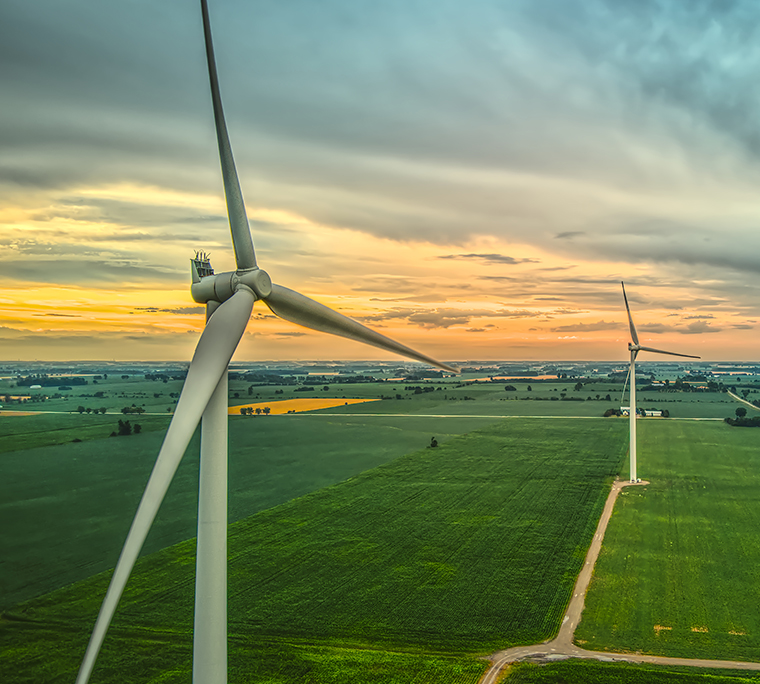
Climate Change
Get the latest research on climate change news; understand how climate change is affecting Canada, the world, and the economy.

What Actions Are Post-secondary Institutions Taking?
Education & Skills August 14, 2024
The federal government has committed to having the country achieve net-zero emissions by 2050. Post-secondary institutions (PSIs) play a key role in helping Canada reach this goal because they equip students with the skills and know-how needed to transition to a more sustainable economy. These multi-faceted competencies are broadly considered to be green skills.
Issue briefing • 10-min read
Partner: Future Skills Centre
An Analysis of the Demand for Green Skills in Canada
Education & Skills June 6, 2024
The threat of climate change is driving an urgent need to decrease reliance on unsustainable practices and technologies in the workplace. The transition to the green economy is expected to create new employment opportunities and surging demand for green expertise for the sustainable jobs of today and tomorrow.
Data briefing • 10-min read
Partner: Future Skills Centre
Toward a Disaster Recovery Framework for Canada: Insights from the United States, Australia, and New Zealand
Sustainability May 16, 2024
The proposed cap-and-trade system by the Government of Canada seeks to reduce greenhouse gas (GHG) emissions in the upstream oil and gas sector to put Canada on track for a net-zero economy by 2050. This policy would see GHG emissions from the sector reduced by 21 per cent—from 171 megatonnes of CO2-equivalent emissions (Mt CO2e) in 2019 to 134 Mt CO2e when the regulations come into force in 2030.
Impact paper • 37-min read
Economic Impacts From Cap and Trade on Oil and Gas
SCanadian Economics March 14, 2024
The proposed cap-and-trade system by the Government of Canada seeks to reduce greenhouse gas (GHG) emissions in the upstream oil and gas sector to put Canada on track for a net-zero economy by 2050. This policy would see GHG emissions from the sector reduced by 21 per cent—from 171 megatonnes of CO2-equivalent emissions (Mt CO2e) in 2019 to 134 Mt CO2e when the regulations come into force in 2030.
Summary for executives • 4-min read
The Path to Net Zero: A Primer on How to Assess SME Progress
Sustainability December 8, 2023
Addressing climate change requires action from all players: businesses, governments, and individuals. As part of a growing international effort, Canada has joined more than 120 countries in committing to achieving net-zero emissions by 2050.
Primer • 30-min read
The Path to Net Zero: Survey Results From Canadian SMEs
Sustainability December 8, 2023
Canada’s successful net-zero transition will be possible only if SMEs play an active role. While SMEs don’t generate high emissions individually, collectively they account for nearly 30 per cent of the national total. SMEs are also crucial to Canada’s international trade, and they need to be ready to trade in a global world where climate change requirements are becoming more stringent.
Impact paper • 50-min read

Instead of Competing Directly with the U.S., Canada Should Develop a Parallel Clean-Tech Strategy
Innovation & Technology October 30, 2023
Our ability to invest big in clean tech and innovation is constrained. Amidst a challenging economic outlook, Ottawa needs to retain fiscal flexibility while finding ways to accelerate private investment in this industry.
Op-ed • 4-min read
Toward a More Sustainable Future
Education & Skills August 3, 2023
The Conference Board of Canada, on behalf of the Future Skills Centre, is studying how Canadian post-secondary institutions (PSIs) are preparing future graduates with the green skills that are needed for a more sustainable future.
Online experience • 8-min read
Partner: Future Skills Centre
Governing Disruption: Toward Canada’s New Mobility Future
Sustainability May 18, 2023
Technologies like vehicle automation, ride-hailing, and micromobility suggest many opportunities for improving local transportation systems. Automated vehicles, for example, can make transportation safer and more accessible. Ride-sharing can reduce rates of car ownership, and micromobility can provide a “last-mile” connection to public transit.
Issue briefing • 17-min read
Disaster Recovery
Sustainability March 3, 2023
Canada’s risk environment is increasingly complex, and Canadians need to be better prepared. The frequency and cost of catastrophic loss events (like floods and fires) have been rising, as has the cost to insure against such losses
Issue briefing • 14-min read











